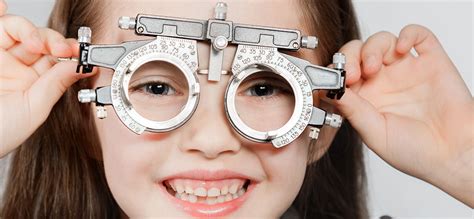Understanding Contact Lens Age Guidelines: A Comprehensive Guide
Contact lenses offer a convenient and popular alternative to eyeglasses, providing clear vision and a more natural aesthetic. However, safe and effective contact lens wear hinges on understanding and adhering to age guidelines. These guidelines aren't arbitrary; they're based on a child's or young adult's developmental stage, their ability to understand and follow hygiene protocols, and the potential for complications. This guide explores the nuances of contact lens age guidelines, addressing common questions and concerns.
What is the Minimum Age for Contact Lenses?
There's no single, universally mandated minimum age for contact lens wear. The decision rests primarily on the individual's maturity level, responsible hygiene practices, and the ophthalmologist's professional judgment. While some children as young as 8 might be considered with careful assessment, most eye care professionals recommend waiting until at least 12 years old, and often later, depending on the child's responsibility and understanding.
Factors influencing the decision include:
- Maturity and Responsibility: Can the child consistently follow complex hygiene instructions and maintain lens cleanliness? This includes proper handling, cleaning, disinfection, and storage.
- Manual Dexterity: Are they capable of carefully inserting and removing lenses without causing damage to their eyes or the lenses themselves?
- Understanding of Risks: Do they comprehend the potential consequences of poor hygiene, such as infections or eye damage?
- Compliance: Will they diligently follow the prescribed wearing schedule and replacement schedule?
Can Young Adults Get Contact Lenses?
Young adults typically have better developed manual dexterity and a greater understanding of responsibility compared to younger children. However, even in young adulthood, regular eye examinations and adherence to proper care instructions are crucial.
What Are the Age Guidelines for Different Types of Contact Lenses?
The age guidelines aren't strictly tied to specific lens types (e.g., soft, rigid gas permeable, or disposable), but rather to the individual's ability to handle and care for them responsibly. However, certain lens types might be considered more suitable for specific age groups based on their complexity of care. For example, rigid gas permeable (RGP) lenses often require a higher level of dexterity and meticulous care, potentially making them less suitable for younger wearers.
What Happens if a Child Doesn't Follow Contact Lens Hygiene?
Neglecting proper contact lens hygiene carries significant risks. This can lead to:
- Infections: Bacterial, fungal, or viral infections can cause significant discomfort, vision impairment, and even permanent eye damage.
- Eye Irritation: Poor hygiene can irritate the surface of the eye, causing redness, itching, and discomfort.
- Corneal Ulcers: Severe infections can lead to corneal ulcers, which are painful open sores on the cornea that require immediate medical attention.
How Do I Know if My Child is Ready for Contact Lenses?
The best way to determine if your child is ready for contact lenses is through a consultation with an ophthalmologist or optometrist. They will assess your child's maturity, dexterity, and understanding of hygiene protocols. They will also conduct a comprehensive eye exam to ensure their eyes are healthy enough for contact lens wear.
What are the benefits of contact lenses for young people?
For many young people, the benefits of contact lenses are primarily cosmetic and lifestyle-related:
- Improved Appearance: Contact lenses provide a more natural look compared to glasses, enhancing self-esteem.
- Enhanced Vision: Contact lenses can improve vision clarity, especially in sports or activities where glasses might be inconvenient.
- Freedom and Convenience: Many young people find that contact lenses offer greater freedom and convenience than glasses, especially during sports or social events.
Is there an upper age limit for contact lens wear?
There's no fixed upper age limit. Many older adults successfully wear contact lenses with proper care and regular eye exams. However, age-related changes in the eyes might require modifications to lens type or care regimens. Consistent monitoring by an eye care professional is essential throughout life.
This article is for informational purposes only and does not constitute medical advice. Always consult with a qualified ophthalmologist or optometrist before starting any contact lens regimen. They can provide personalized guidance and ensure the safest and most effective approach for your specific needs.

